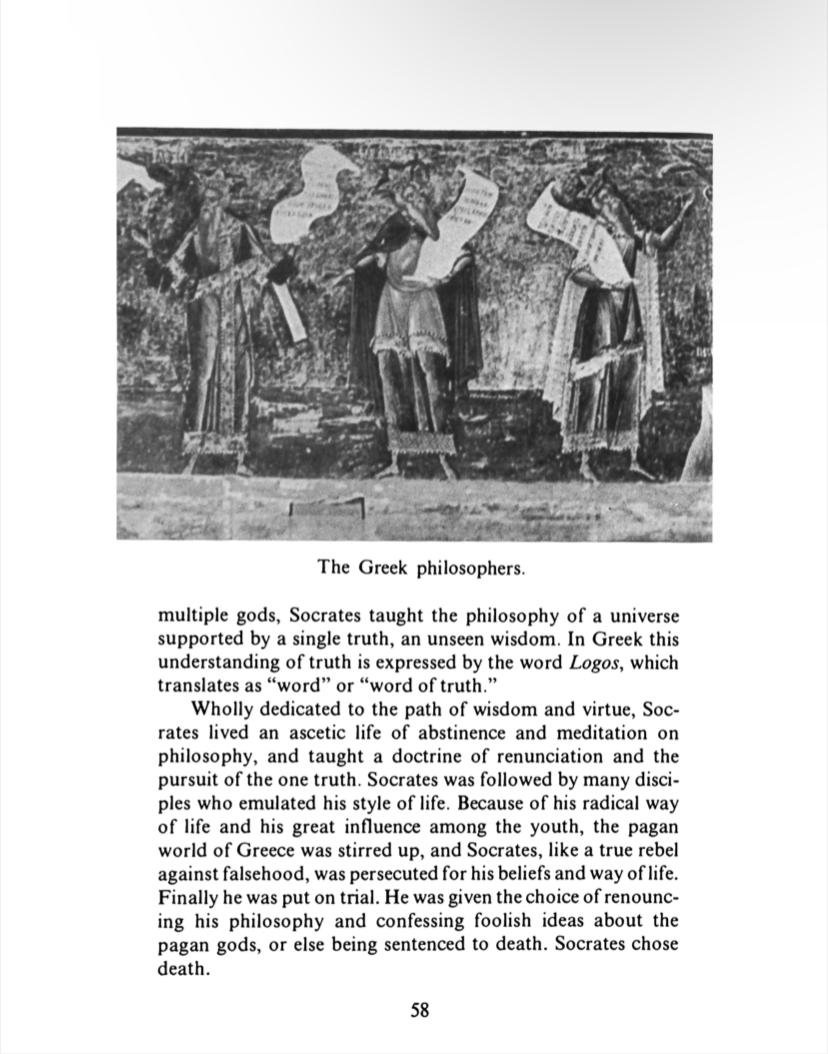
- 8F6C6DD5-1C97-4250-83C9-9B64D00DF393.jpeg (377.2 KiB) Viewed 3271 times
† † †
道
No matter how much we may study, it is not possible to come to know God unless we live according to his commandments, for God is not known by science, but by the Holy Spirit. Many philosophers and learned men came to the belief that God exists, but they did not know God. It is one thing to believe that God exists and another to know Him. If someone has come to know God by the Holy Spirit, his soul will burn with love for God day and night, and his soul cannot be bound to any earthly thing.— St. Silouan the Athonite
That Which is known as the Christian religion existed among the ancients, and never did not exist.”— St. Augustine
In Christ the Eternal Tao, Hieromonk Damascene states:
“If we concede that the pre-Christian philosophers did seek the truth, and that they did catch glimpses of it, it only stands to reason that their teachings should bear some similarities, like a broken reflection of the moon in water, to the fullness of Truth in Jesus Christ. Therefore, these similarities need not appear as a threat to Christianity; instead, they offer one more proof of Christ as universal Truth.”
Before the Word came into the world
The sages sought Him out in every place.
They saw Him not, but sensed His presence everywhere.
They found Him in living beings, mountain crags, and flowing streams,
in seas and winds.
He was not these things, but He spoke in these things, guiding them.
All things followed His course.
Therefore the sages called Him by His other name:
The Way
Gi-ming Shien "Order is natural and necessarily requires a directing principal, for it is unimaginable that order is produced by the ordered individuals themselves. If there were no directing principle, how could there be proportion, symmetry, and the adaptation of one thing to another?
There must, therefore, be an organizing power which orders-as, for example, in the seasons. The principal of seasons, from which the seasons proceed in an orderly and never failing fashion, must exist before the seasons themselves. The ultimate principal is, therefore, of prime importance, and it is this that Lao Tzu calls the Tao"
There exists a Being undifferentiated and complete, Born before heaven and earth.
Tranquil, boundless,
Abiding alone and changing not, Encircling everything without exhaustion.
Fathomless, it seems to be the Source of all things. I do not know its name,
But characterize it as the Tao.
Arbitrarily forcing a name upon it, I call it Great....
TAO TEH CHING, CHAPTERS 25 AND 4 (Translated by Gi-ming Shien and Eugene Rose).
In the beginning was the Tao, And the Tao was with God, And the Tao was God.
The same was in the beginning with God.
All things were made by Him;
And without Him was not anything made that was made. In Him was life, and the life was the light of men.
And the light shines in darkness,
And the darkness comprehended it not.
He was in the world, and the world was made by Him, And the world knew Him not.
And the Tao became flesh,
And dwelt among us,
And we beheld His glory ...
THE GOSPEL OF JOHN, CHAPTER I
(Translated from a Canton edition of the New Testament, published in China in 1911 by the American Bible Society.).
The trees, the birds, the rivers and winds:
These had no choice but to follow the Way.
Man alone is given a choice;
Man alone can follow or go his own way.
If he follows the Way, he will suffer with the pain of the world,
But He will find the Original Harmony.
If he follows his own way, he will suffer only with himself,
And within him will be chaos.
—Christ the Eternal Tao. By Hieromonk Damascene.
道
Jesus said to him, "I am the way, the truth, and the life. No one comes to the Father except through Me. - John 14:6
And they, therefore, are the wise who walk in His way; for He Himself has said, "I am the way."
- St. Dionysius the Areopagite
Ad 550